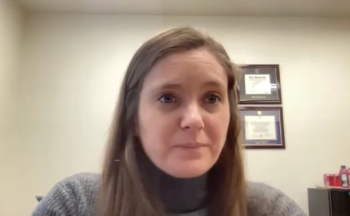
“We have huge amounts of work to do to maximize the efficacy of immunotherapy,” Christine Bestvina, MD, said during an interview with CancerNetwork.

Your AI-Trained Oncology Knowledge Connection!


“We have huge amounts of work to do to maximize the efficacy of immunotherapy,” Christine Bestvina, MD, said during an interview with CancerNetwork.
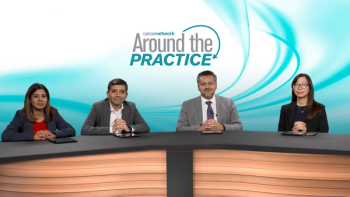
Panelists discuss how successful academic-community partnerships in delivering chimeric antigen receptor (CAR) T-cell therapy for multiple myeloma patients have evolved through shared learning experiences, established communication pathways, and continuous refinement of collaborative care protocols.


Dr. Garon explains the factors guiding his choice between EGFR inhibitors for EGFR+ NSCLC and when he might consider alternatives like afatinib or erlotinib.

Christine Bestvina, MD, stated that the presence of EGFR and ALK mutations can affect the way that a patient will react to treatment and should be factors that physicians consider.

“We need some longer-term overall survival data to help discuss with patients the best treatment of choice for them,” Christine Bestvina, MD, said.

In this segment, Dr Mohan asks Dr Mann about emerging investigational agents for the management of relapsed/refractory multiple myeloma (R/R MM) that show particular promise.

In this segment, Dr Mohan asks Dr Nadeem about the real-world performance of elranatamab, its advantages and challenges in clinical practice, and the next therapeutic approach if a patient experiences disease progression on elranatamab.
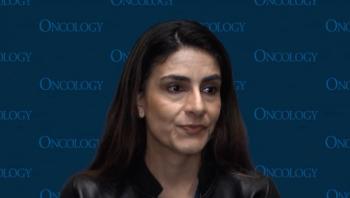
Additional local, regional, or national policy may bolster access to screening for colorectal cancer, according to Aasma Shaukat, MD, MPH.

Panelists discuss how Julia prepares patients for treatment with amivantamab, including educating them on potential side effects and incorporating proactive strategies into treatment management to optimize patient care and minimize adverse effects.

Panelists discuss the shared decision-making process following Melinda's evaluation, with Dr. Spira explaining the factors that led to recommending the MARIPOSA2 regimen, while Melinda shares her active role in participating in the decision-making process regarding her treatment.
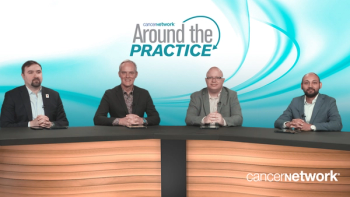
Panelists discuss at what line of therapy bispecific antibodies are considered in treatment decision-making, whether they are used earlier or later in the sequence, and the factors influencing that choice, including weighing bispecifics against other options like chimeric antigen receptor (chimeric antigen receptor) T or standard therapies. They also address the clinical and molecular factors that guide the selection between B-cell maturation antigen (BCMA)– and GPRC5D-targeting bispecifics and comment on the study exploring talquetamab as a bridging strategy before BCMA CAR T therapy, highlighting the potential impact of bispecifics in this treatment paradigm.
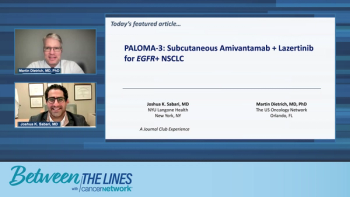
Panelists discuss how treatment-emergent adverse events were comparable among patients treated with subcutaneous amivantamab-lazertinib vs intravenous administration in the PALOMA-3 trial.

Panelists discuss how PALOMA-3’s pharmacokinetic and secondary end point analyses demonstrated the clinical benefit of palbociclib through multiple measures, including progression-free survival, objective response rate, and drug concentration levels that inform optimal dosing strategies.

Panelists discuss how bispecific antibodies are reshaping the therapeutic approach in relapsed/refractory multiple myeloma (R/R MM), covering their mechanism of action, currently approved agents, and potential advantages. They explore how these therapies have transformed clinical decision-making, including optimal lines of therapy, patient selection, and best practices for integrating bispecifics into clinical practice.
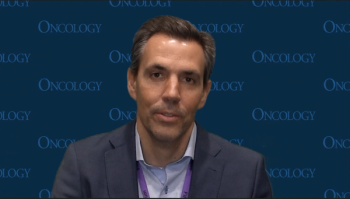
The mechanism of action for daraxonrasib inhibits effectors and signaling while forming a relatively unstable tri-complex with codon 12 mutations.
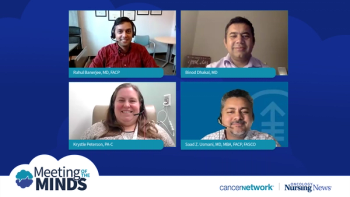
This video episode examines decision-making between CAR-T therapy and novel agents in the second-line setting, scenarios for preferring alternative therapies, and treatment strategies following progression after ide-cel, emphasizing the impact of prior CAR-T therapy on subsequent choices.
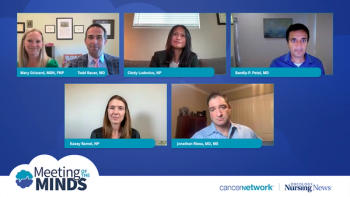
This video segment provides an in-depth discussion on the first-line use of lorlatinib for ALK-positive metastatic NSCLC, including clinical evidence from the phase 3 CROWN trial, the broader therapeutic landscape and alternative strategies, real-world insights on lorlatinib's performance, and key considerations for selecting among ALK inhibitors based on patient-specific factors.

This video segment reviews the clinical evidence supporting lorlatinib as a first-line treatment for ALK-positive metastatic NSCLC, emphasizing key efficacy outcomes from the phase 3 CROWN trial.
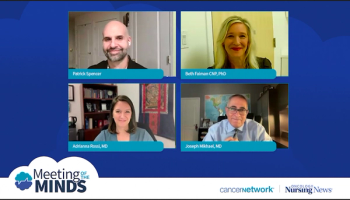
This segment examines the decision-making process between CAR-T therapy and other innovative treatments, exploring scenarios where alternative therapies may be more appropriate.

This segment highlights clinical experiences with ide-cel in the second-line setting, focusing on observed improvements in efficacy and quality of life, as well as challenges in administration

Panelists discuss how the CEPHEUS study comparing subcutaneous daratumumab plus VRd vs VRd alone in patients with transplant-ineligible newly diagnosed multiple myeloma (NDMM) provides important insights into the role of quadruplet therapy in this specific population.

Panelists discuss how managing challenges in the chimeric antigen receptor (CAR) T referral process requires addressing key barriers like timely patient identification, insurance authorization delays, and manufacturing coordination while emphasizing the importance of early referrals from community physicians.
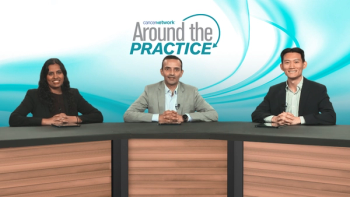
Panelists discuss how UCSF Health has learned that successful integration of CAR T-cell therapy in multiple myeloma requires multidisciplinary collaboration, patient selection optimization, and management of toxicities. Future research includes exploring CAR T-cell therapy in earlier treatment lines and combining it with novel agents to enhance efficacy.
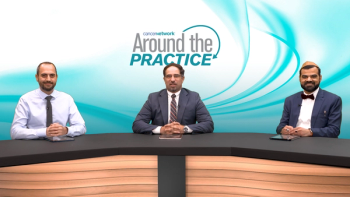
Panelists discuss how expanding CAR T therapy into earlier lines of multiple myeloma treatment requires careful evaluation of clinical trial data, infrastructure readiness, patient selection criteria, and manufacturing capacity while balancing the therapy’s potential benefits against established treatment approaches.

This video episode explores data supporting ide-cel in the second-line setting for multiple myeloma, highlighting key findings from the KarMMa and KarMMa-3 trials, comparisons to other options, and clinical experiences regarding efficacy, quality of life benefits, and implementation challenges.

Panelists discuss how successful comanagement of CAR T-cell therapy cases requires close coordination between academic centers and community practices, with structured protocols for monitoring, communication, and patient handoffs, while addressing challenges in referral timing, resource allocation, and long-term follow-up care.

Panelists discuss how effective co-management of chimeric antigen receptor (CAR) T patients requires clear communication protocols, standardized handoff procedures, and ongoing collaboration between academic centers and community practices to ensure safe transitions and optimal long-term monitoring.

Panelists discuss collaborating with community practices on CAR T-cell therapy for multiple myeloma through joint clinical trials, patient education programs, and shared data initiatives. These partnerships enhance treatment access, foster innovation, and improve patient outcomes across diverse settings.

“It does appear like MET expression could be one of the mechanisms wherein you could differentiate between responders and non-responders,” Kanwal P.S. Raghav, MBBS, MD, stated.